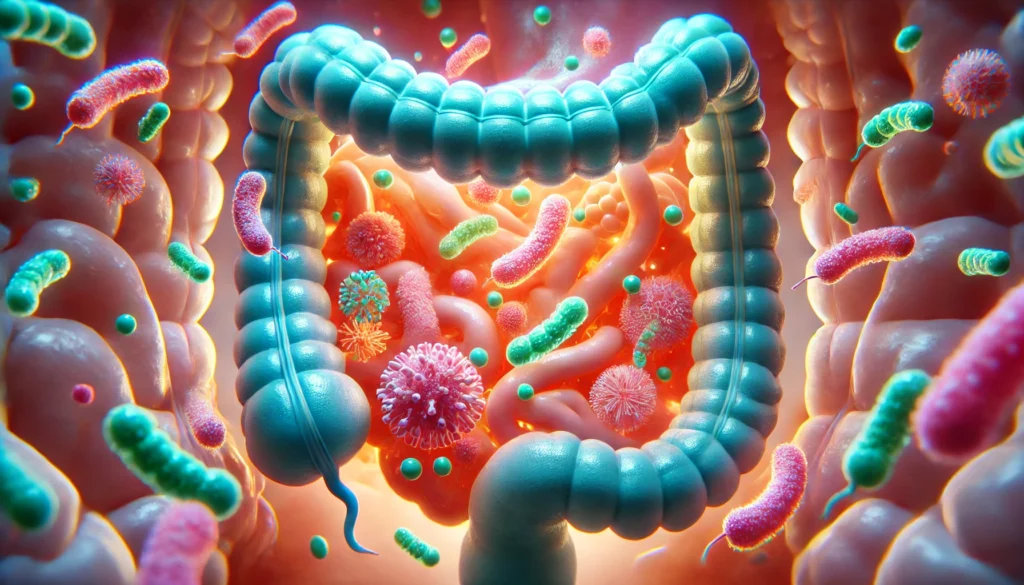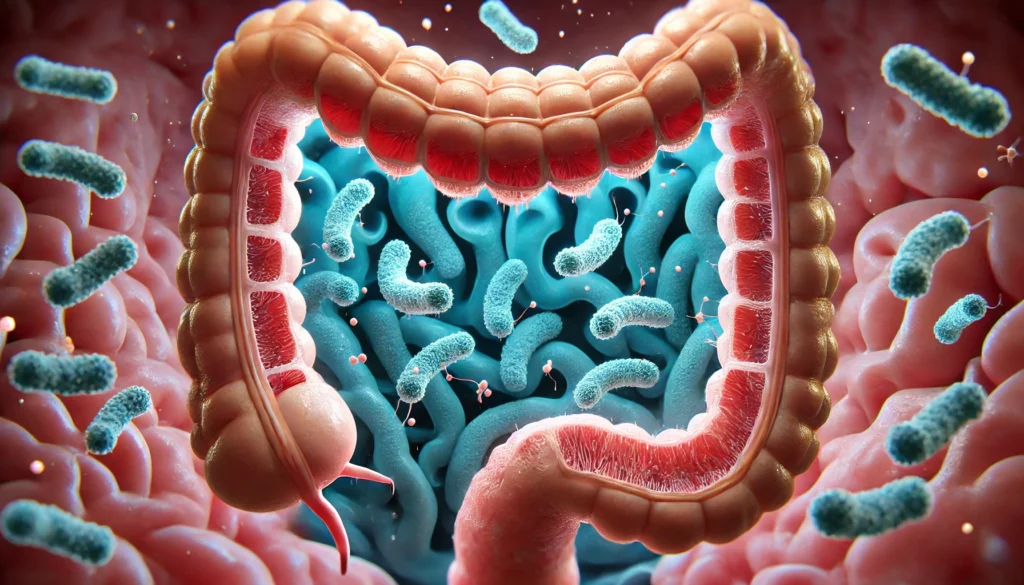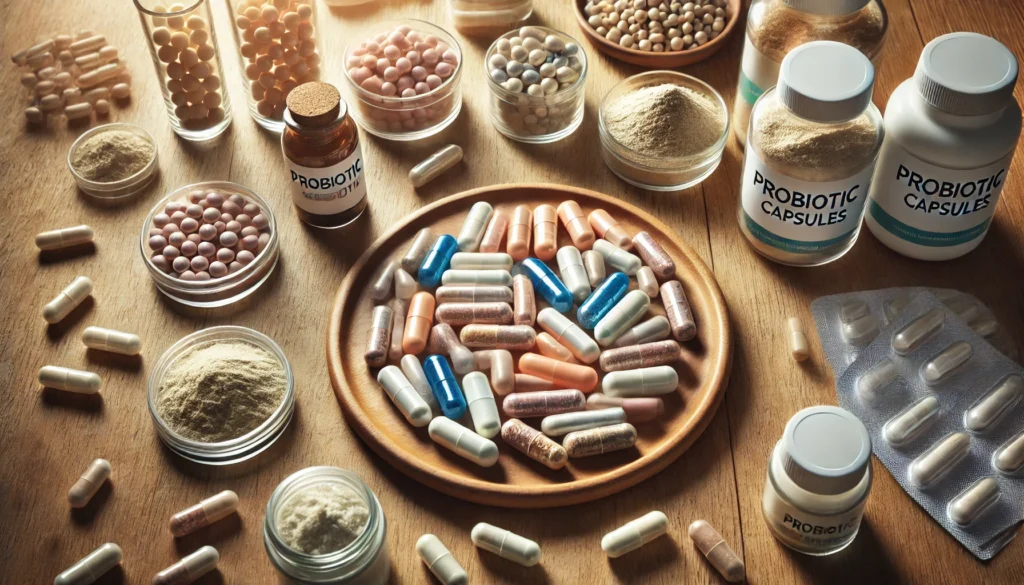Introduction
The health of the human gut plays a central role in everything from digestion and immunity to mental clarity and emotional balance. In recent years, growing scientific interest has illuminated a condition known as leaky gut syndrome, a phenomenon in which the intestinal lining becomes compromised, allowing harmful substances to leak into the bloodstream. This disruption can cascade into systemic inflammation, chronic fatigue, autoimmune reactions, digestive distress, and even mood disorders. For individuals living with this condition, the search for relief often leads to the complex and promising world of probiotics.
You may also like: The Science of Gut Repair: How to Heal Leaky Gut Syndrome Naturally with a Proven Gut Healing Diet
Probiotics—beneficial live bacteria that help balance the gut microbiome—have become an increasingly central part of treatment strategies for gut-related conditions. As researchers dive deeper into the nuances of gut health, they have identified specific strains of probiotics that may support the repair of the gut lining, regulate immune responses, and restore microbial diversity. For those navigating the challenges of leaky gut syndrome, understanding which strains are most effective can make all the difference between temporary symptom management and long-term healing.
This article provides a deep dive into the relationship between leaky gut syndrome and probiotics, examining the underlying science, the best strains to look for, the mechanisms of healing, and what medical experts recommend. Whether you’ve been diagnosed with intestinal permeability, suspect you may be experiencing symptoms, or are simply curious about the best probiotic for leaky gut and how to use it, this comprehensive guide will walk you through everything you need to know—grounded in evidence, expert insights, and practical advice.

What Is Leaky Gut Syndrome?
Leaky gut syndrome, formally referred to as increased intestinal permeability, occurs when the tight junctions between the cells in your intestinal wall become loosened or damaged. These tight junctions act as gatekeepers, determining what gets absorbed into the bloodstream and what stays within the digestive tract. When these junctions become compromised, it allows toxins, bacteria, and partially digested food particles to pass through the gut lining and into the systemic circulation.
While the term “leaky gut syndrome” is not always recognized in conventional medicine as a standalone diagnosis, increased intestinal permeability is a well-documented physiological condition supported by a growing body of research. Conditions such as inflammatory bowel disease (IBD), celiac disease, and irritable bowel syndrome (IBS) often present with compromised gut barrier function, suggesting that leaky gut may be both a symptom and a contributor to chronic digestive disorders.
This syndrome is also associated with a variety of non-digestive symptoms, including brain fog, fatigue, skin rashes, joint pain, and autoimmune flare-ups. These seemingly unrelated symptoms stem from systemic inflammation triggered by foreign substances entering the bloodstream—an immune reaction that the body interprets as a threat.
Scientists believe that factors such as poor diet, chronic stress, infections, alcohol overconsumption, medications like NSAIDs and antibiotics, and microbiome imbalances may all contribute to the development or worsening of leaky gut. Therefore, addressing these root causes is crucial, and probiotics—specifically targeted strains—have emerged as one of the most promising interventions in this process.

The Role of the Gut Microbiome in Leaky Gut
The gut microbiome refers to the trillions of microorganisms that reside in your digestive tract, influencing everything from nutrient absorption to immune modulation. A healthy microbiome is diverse and well-balanced, with beneficial bacteria keeping pathogenic species in check. However, when dysbiosis—an imbalance in microbial populations—occurs, it can trigger inflammation and compromise the integrity of the gut lining.
Research shows that certain bacterial strains in the microbiome play a direct role in maintaining tight junction integrity and promoting mucosal healing. These strains contribute to the production of short-chain fatty acids like butyrate, which nourish the cells lining the colon and strengthen the epithelial barrier. Others help by modulating immune responses and reducing the secretion of pro-inflammatory cytokines.
Leaky gut syndrome often coexists with microbial imbalances, including low levels of beneficial bacteria like Lactobacillus and Bifidobacterium and higher concentrations of opportunistic or pathogenic microbes. This shift in microbial populations can perpetuate inflammation and hinder the body’s ability to repair the gut lining.
As such, replenishing beneficial bacteria through the use of carefully selected probiotics is a critical strategy in restoring gut balance and supporting intestinal healing. But not all probiotics are created equal, and understanding which ones target the specific mechanisms involved in leaky gut is essential.

How Probiotics Help Heal a Leaky Gut
The therapeutic use of probiotics for leaky gut syndrome is rooted in several mechanisms of action, all of which aim to restore balance to the gut environment and repair the compromised intestinal barrier. The best probiotic for leaky gut will address these key functions:
First, probiotics help reinforce the integrity of the gut lining. Certain strains stimulate the production of mucins—gel-like proteins that form a protective mucus layer over the intestinal epithelium. This barrier shields the gut wall from direct exposure to harmful bacteria, digestive enzymes, and toxins.
Second, probiotics modulate the immune system by reducing chronic inflammation. When the gut becomes permeable, the immune system responds with inflammation as a defense mechanism. Probiotic strains such as Lactobacillus rhamnosus GG and Bifidobacterium infantis have been shown to downregulate pro-inflammatory markers while boosting regulatory T-cell function, which calms overactive immune responses.
Third, probiotics crowd out harmful microbes by producing substances like lactic acid and hydrogen peroxide, which create an inhospitable environment for pathogens. This competitive exclusion helps prevent bacterial overgrowths that can further damage the gut lining.
Lastly, many probiotic strains produce metabolites such as butyrate and propionate, short-chain fatty acids that are essential for colonocyte health. Butyrate, in particular, has been shown to tighten the junctions between intestinal cells and reverse the damage caused by inflammation and dysbiosis.
These multi-faceted benefits make probiotics a cornerstone of any protocol aimed at reversing intestinal permeability. However, the effectiveness of probiotics depends greatly on the strains used, the quality of the formulation, and the overall health context of the individual.

Top Probiotic Strains for Leaky Gut Support
When selecting the best probiotic for leaky gut, it’s crucial to focus on clinically researched strains that have demonstrated specific benefits in reinforcing the intestinal barrier and restoring microbial balance. The following strains are among the most widely studied and trusted for their efficacy in managing leaky gut syndrome:
Lactobacillus rhamnosus GG (LGG): This well-documented strain enhances gut barrier function, reduces inflammation, and promotes mucin production. It has been shown to decrease intestinal permeability in both animal and human studies.
Bifidobacterium lactis: Known for its ability to stimulate the immune system and produce short-chain fatty acids, B. lactis supports both microbial balance and epithelial cell integrity.
Lactobacillus plantarum: This strain binds to intestinal mucosa and helps prevent the adhesion of pathogens. It also increases the expression of tight junction proteins, reducing permeability.
Bifidobacterium longum: B. longum has immunomodulatory effects that help reduce inflammation, protect against endotoxins, and support the epithelial barrier.
Saccharomyces boulardii: Although technically a beneficial yeast, this probiotic has powerful anti-inflammatory and antimicrobial properties. It is particularly effective in controlling pathogenic overgrowths and repairing damage to the gut lining.
When combined in a synergistic formulation, these strains can provide multi-layered support for individuals struggling with leaky gut. Many high-quality probiotic supplements now feature blends specifically designed to address intestinal permeability and microbial imbalance.
How to Choose the Best Probiotic for Leaky Gut
Choosing the right probiotic supplement can be overwhelming, given the variety of products on the market. Here’s what to look for when selecting the best probiotic for leaky gut:
First, prioritize multi-strain formulations that include a combination of Lactobacillus and Bifidobacterium species, along with Saccharomyces boulardii if needed. A diverse blend helps cover more of the therapeutic bases, supporting immune balance, tight junction repair, and pathogen control.
Second, check the CFU (colony-forming units) count. While higher isn’t always better, an effective product should provide at least 10–20 billion CFUs per serving to ensure sufficient viability and colonization.
Third, look for clinical backing. The best products will specify the exact probiotic strains used (not just the species), and ideally, those strains should be supported by published research in peer-reviewed journals. For example, “Lactobacillus rhamnosus GG” indicates a defined strain with proven benefits, unlike a generic “Lactobacillus rhamnosus” label.
Fourth, make sure the formulation includes prebiotics such as inulin or fructooligosaccharides (FOS). These fibers nourish the probiotics and help them establish a strong presence in the gut.
Lastly, consider delivery mechanisms. Enteric-coated capsules or microencapsulated probiotics are more likely to survive stomach acid and reach the intestines intact, where they can exert their benefits.
When and How to Take Probiotics for Leaky Gut Healing
Timing and consistency are critical when using probiotics to address leaky gut syndrome. Most experts recommend taking probiotics on an empty stomach or 30 minutes before a meal, as this maximizes survival through the stomach’s acidic environment.
Dosage can vary depending on the product and the individual’s condition, but for those with leaky gut syndrome, higher-potency products in the range of 20–50 billion CFUs may be warranted, at least initially. It’s important to start slow, especially if you’re new to probiotics, as sudden shifts in gut flora can temporarily cause bloating, gas, or changes in bowel movements.
Probiotic use should also be paired with lifestyle and dietary changes to ensure the best results. A gut-healing protocol should ideally include anti-inflammatory foods, bone broth, fermented vegetables, omega-3 fatty acids, and glutamine-rich foods like cabbage and spinach. It should also limit sugar, alcohol, gluten, processed foods, and dairy if sensitivities are present.
For sustained improvement, a minimum of 8–12 weeks of daily probiotic use is typically recommended, with adjustments based on symptom improvement and practitioner guidance.
Frequently Asked Questions
1. What is the connection between leaky gut syndrome and probiotics?
Leaky gut syndrome is closely linked to imbalances in gut microbiota. Probiotics work to correct this imbalance by repopulating the gut with beneficial bacteria that can help repair the intestinal lining and reduce inflammation. They create a protective environment by competing with harmful microbes, producing healing short-chain fatty acids, and reinforcing the mucosal barrier. In many cases, probiotics are considered an essential tool in addressing the underlying causes of intestinal permeability rather than just the symptoms.
2. Can leaky gut be reversed with probiotics alone?
While probiotics are a powerful component in healing leaky gut, they are most effective when used as part of a broader, integrative approach. This includes dietary changes, stress reduction, gut-supportive nutrients, and sometimes avoiding environmental toxins or medications that aggravate the condition. Probiotics serve to rebalance the microbiome and enhance gut lining repair, but true healing typically requires a multi-faceted intervention guided by lifestyle and nutrition.
3. Which is the best probiotic for leaky gut in terms of specific strain?
Among the most recommended strains for leaky gut are Lactobacillus rhamnosus GG, Bifidobacterium longum, and Lactobacillus plantarum. These strains have shown the ability to reduce intestinal permeability, produce anti-inflammatory compounds, and increase tight junction protein expression. Saccharomyces boulardii also stands out for its role in managing harmful bacteria and promoting mucosal healing. The most effective probiotic for leaky gut usually contains a combination of these researched strains.
4. How long does it take to see results with leaky gut syndrome probiotics?
Results from taking leaky gut syndrome probiotics can vary depending on the severity of the condition and the individual’s response. Some people report improvements in digestive symptoms and inflammation within a few weeks, while others may take several months to notice substantial progress. Long-term, consistent use, combined with lifestyle and dietary changes, tends to yield the best outcomes. Clinical studies often use a timeframe of 8–12 weeks to measure significant improvements.
5. Are there any side effects of using probiotics for leaky gut?
Most people tolerate probiotics well, but mild side effects can occur, especially during the initial days of use. These may include gas, bloating, and changes in bowel habits as the gut microbiome adjusts. These symptoms typically resolve within a few days. However, individuals with compromised immune systems or serious health conditions should consult a healthcare provider before starting any new probiotic regimen to avoid complications.
6. Can probiotics worsen leaky gut in some individuals?
In rare cases, especially in people with severe dysbiosis or small intestinal bacterial overgrowth (SIBO), introducing certain probiotics may temporarily exacerbate symptoms. This is often due to die-off reactions or imbalances in the gut microbiome. It’s important to choose the right probiotic for your specific condition and start with a low dose, gradually increasing it as tolerated. Medical guidance is highly recommended if symptoms worsen or persist.
7. Is it safe to take leaky gut syndrome probiotics long-term?
Long-term probiotic use is generally considered safe and beneficial, particularly for maintaining gut health and preventing recurrence of intestinal permeability. However, it is essential to reassess periodically, as individual needs may change. Some people rotate between different probiotic strains or take breaks to avoid microbial adaptation. A healthcare professional can help determine the best long-term approach based on individual health goals and progress.
8. Do probiotics help with autoimmune conditions linked to leaky gut?
Yes, many autoimmune conditions such as rheumatoid arthritis, Hashimoto’s thyroiditis, and lupus are believed to have a gut-immune connection. Probiotics can help by reducing systemic inflammation and preventing the translocation of inflammatory molecules through a compromised gut barrier. By improving gut lining integrity and immune modulation, probiotics may indirectly support autoimmune management, though they should not replace standard medical care.
9. What foods support probiotic function in healing leaky gut?
Foods rich in prebiotics—such as garlic, onions, leeks, bananas, asparagus, and chicory root—feed beneficial bacteria and enhance the effectiveness of probiotics. Fermented foods like kimchi, sauerkraut, kefir, and yogurt also provide natural probiotic support. Consuming these alongside a supplement can help establish a more diverse and resilient gut microbiome, essential for healing and maintaining intestinal integrity.
10. How do I know if the probiotics are working?
Signs that probiotics are working may include reduced bloating, improved digestion, more regular bowel movements, clearer skin, enhanced mood, and decreased systemic inflammation or autoimmune symptoms. However, some benefits may be subtle or take time to manifest. Lab tests measuring gut permeability markers or microbiome composition can offer more precise feedback. Listening to your body and tracking changes over several weeks can also help gauge effectiveness.

Conclusion
Leaky gut syndrome is a complex condition with wide-ranging effects on digestive, immune, and even mental health. While the causes are multifactorial—ranging from diet and stress to toxins and infections—the path to healing is rooted in restoring balance to the gut microbiome and repairing the intestinal barrier. Probiotics offer a powerful, science-backed tool in this journey, capable of reinforcing gut integrity, reducing inflammation, and cultivating a more resilient internal ecosystem.
Choosing the best probiotic for leaky gut involves selecting clinically supported strains such as Lactobacillus rhamnosus GG, Bifidobacterium lactis, and Saccharomyces boulardii, all of which have demonstrated healing properties in cases of intestinal permeability. Incorporating these beneficial organisms through quality supplements and fermented foods, alongside anti-inflammatory nutrition and lifestyle habits, creates a comprehensive strategy for gut restoration.
Whether you’re seeking to address chronic digestive discomfort, autoimmune flare-ups, or just optimize your wellness through microbiome balance, integrating leaky gut syndrome probiotics into your regimen could be a transformative step. The science is still evolving, but the foundational message is clear: healing begins in the gut, and probiotics can help lead the way.
Was this article helpful? Don’t let it stop with you. Share it right now with someone who needs to see it—whether it’s a friend, a colleague, or your whole network. And if staying ahead on this topic matters to you, subscribe to this publication for the most up-to-date information. You’ll get the latest insights delivered straight to you—no searching, no missing out.
Further Reading:
Leaky Gut and the Ingredients That Help Treat It: A Review
Effects of Probiotics on Gut Microbiota: An Overview
Targeting gut microbiota and metabolism as the major probiotic mechanism



